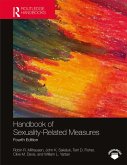In his treatment of the issues raised by the movements of women for equal rights a century ago, Michels anticipated controversies and conflicts about which people care deeply today. He took a clear position in support of the desirability of equality between the sexes. In consequence, it remains relevant to current debates within feminism over equality and difference and the corresponding challenge to, and feminist critique of, social science arising from the (re) emergence of "difference" feminism.Sexual Ethics constitutes both an analysis of the "woman problem" and a document describing the wars between the sexes during this period and an important and overlooked piece of history of the classic sociological tradition. Michels observed that the national and economic conflicts in modern Europe were vast in scale and revealed sharply sensed injustices, and also that sex antagonisms are becoming more acute. He presented an argument, consistent with his theoretical position, about the seriousness of women's rights. Michels' discussions of sexuality, sexual morality, and the relations of the sexes had as its stimulus "the new sexual ethic" advocated by feminists. He pointed out that true equality required equality of rights to sexual liberty for women or chastity prior to marriage for men.Michels supported premarital chastity for men as an ideal, but he doubted that very many would practice it. Michels was virtually alone in the sociological tradition in seeking to illuminate the "struggle for love" between men and women by reference to the "erotic coquetry" in the sexual behavior of "lower animals." Despite his stand for equality of men and women in sexual matters, a recurrent theme in Sexual Ethics is that men are sexually more aggressive than women, at least in part due to social structures and cultural traditions. Michels advocated family planning (but opposed abortion) in the interests of marital and family happiness and economic well-being, especially for the poor.In his new introduction, Terry R. Kandal discusses Robert Michels' life. He explores, among other topics, Michels' treatment of the woman question and the reactions of Michels' contemporaries to the same question. He also discusses the feminist critique of social science, and the place of Michels in and the gender questions of our times. The book will be of particular interest to those interested in the history of relations between men and women as well as those interested in questions of biological determinism.
Dieser Download kann aus rechtlichen Gründen nur mit Rechnungsadresse in A, B, BG, CY, CZ, D, DK, EW, E, FIN, F, GR, HR, H, IRL, I, LT, L, LR, M, NL, PL, P, R, S, SLO, SK ausgeliefert werden.









